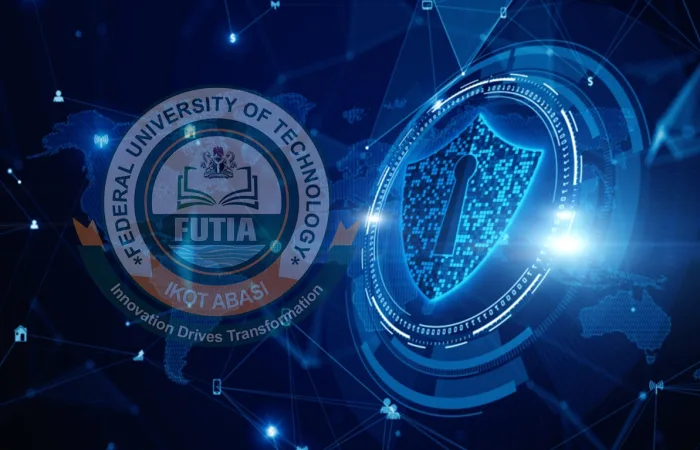Cybersecurity is the practice of protecting computers, servers, networks, and other digital devices from unauthorized access, theft, and damage. It involves implementing measures such as firewalls, antivirus software, encryption, strong passwords, and regular security updates to protect against cyber attacks and threats. The goal of cybersecurity is to maintain the confidentiality, integrity, and availability of digital information and systems.
Imeh Umoren, PhD, is a Computer Scientist and Products Leader passionate about the integration of Artificial Intelligence and Soft Computing (AISC), Data Science, Cyber Security and Privacy Engineering in business, ethics and society. His experiences span academia and industry in research, software engineering and product management. He is a Socio-Technologist motivated by the ability to improve human conditions in low-resource environments to create wealth and accelerate development through technical solutions. He is an innovator and educator. Imeh Umoren has founded and scaled new initiatives, teaching programmes and research projects both domestically and internationally. He has also served as a course lecturer for several courses taught at numerous tertiary institutions particularly, Akwa Ibom State University (AKSU) and Federal University of Technology Ikot Abasi (FUTIA).
Umoren is presently serving as the Head, Research and Development (R&D) Team at FUTIA. He has served as Principal Investigator (PI) in several National and International Research Grant; TETFund Institutional Based Research (IBR 2018-2019), CBN-Developmental Component (Grant) Under -The Tertiary Institution Entrepreneurial Scheme (CBN-TIES 2022), TETFund National Research Fund (NRF 2023) and Erasmus-EDU-2023-CBHE-Strand-1. He was trained in University of Calabar, Nigeria on Unix/Linux Technologies, Data Processing and Information Systems (1986-1988). He held a Total E&P (ELF) and NNPC Joint Ventures Scholarship from 2010-2012. Imeh Umoren is a Pioneer Academic Staff and Ag. Provost, School of Computing and Information Technology (SCIT). He also served as the Ag. Head, Department of Cyber Security. Umoren has more than 15 years’ experience in Academic/Research and global ICT industry. He is a strategic thinker, Analyst and a Multi-tasking development specialist focusing on people, process and technology. He received his Bachelor’s degree (B.Sc.) in Computer Science, Master’s (M.Sc.) in Computer Science and Degree of Doctor of Philosophy (PhD) in Computer Science respectively from UPH, where his academic and research interests were oiled broadly in the fields of responsible Artificial Intelligence, Algorithms and Complexity Theories, Mobile Computing, Data Science, Computational Intelligence and their applications for social benefit.
Umoren is a member of several high-profile professional bodies including – IEEE (an elite group within the global engineering community), a recognized member of Polish Neural Networks Society (Poland), MIT-Data Science, Nigeria Computer Society (NCS), Internet Society (ISOC), Computer Registration Council of Nigeria (CPN) etc. He has over 65 published articles and conference papers. His research interests focus on Artificial Intelligence, Systems Optimization, Mobile Computing, Algorithms and Complexity Theory, Computational Intelligence, Soft Computing & Machine Learning (SCML).
Email: iumoren@futia.edu.ng
Welcome to SCIT-Cyber Security Digital Community
Congratulations on accepting a place to study in the School of Computing and Information Technology at FUTIA. Cyber Security is a Four (4) years degree programme domiciling in the School of Computing and Information Technology (SCIT). The porogramme is designed to provide relevant educational structure that will equip the students with profound and useful skills that will enable graduates to function in this digital age. Indeed, cybersecurity, data protection and privacy engineering are emerging as central issues that our society need to tackle in the coming decade to secure our future. The department of Cybersecurity at FUTIA, is poised to tackling these challenges head-on by fostering interdisciplinary research collaborations and increasing the visibility and strength of SCIT- cybersecurity research. FUTIA is advancing discovery and partnerships in numerous cyber security application areas including;
Philosophy
Cyber security is about how we develop secured computers, applications and computer networks, to ensure that the data stored and transmitted through them is protected from unauthorized access or to combat digital security threats and hazards. As we conduct more of our social, digital marketing and business activities online, there is a corresponding increase in the demand for cyber security professionals and tools to protect our digital environment and economy.
In line with FUTIA– SCIT Mission on Cyber Security to give value multidisciplinary work, draw inspiration from applications and collaborate with innovators to provide real-world, standards-based cybersecurity capabilities that address business needs and objectives.
To Ignite, nurture and advance Cybersecurity through a secure cyber infrastructure that inspires technological innovation and fosters building a robust, resilient and attack-free digital world for sustainable economic growth.
Why SCIT- Cyber Security?
The department is confident as information security engineers, identify threats and vulnerabilities in systems and software, then apply their skills to developing and implementing high-tech solutions to defend against hacking, malware and ransomware, intruder threats and several types of cybercrime.
I urge you to remember the priorities that should guide our profession which is a commitment to preparing students for 21st century challenges and an obligation to encourage students from all backgrounds to share in cyber security education. By continuing to work together, we will empower a generation of computationally- and data-savvy as well as Privacy Engineering leaders with the fundamental skills they need to succeed in the 21st-century technology-driven world
Core values:
“Digital freedom stops where that of users begins… Nowadays, digital evolution must no longer be offered to a customer in trade-off between privacy and security. Privacy is not for sale, it’s a valuable asset to protect.”
―
